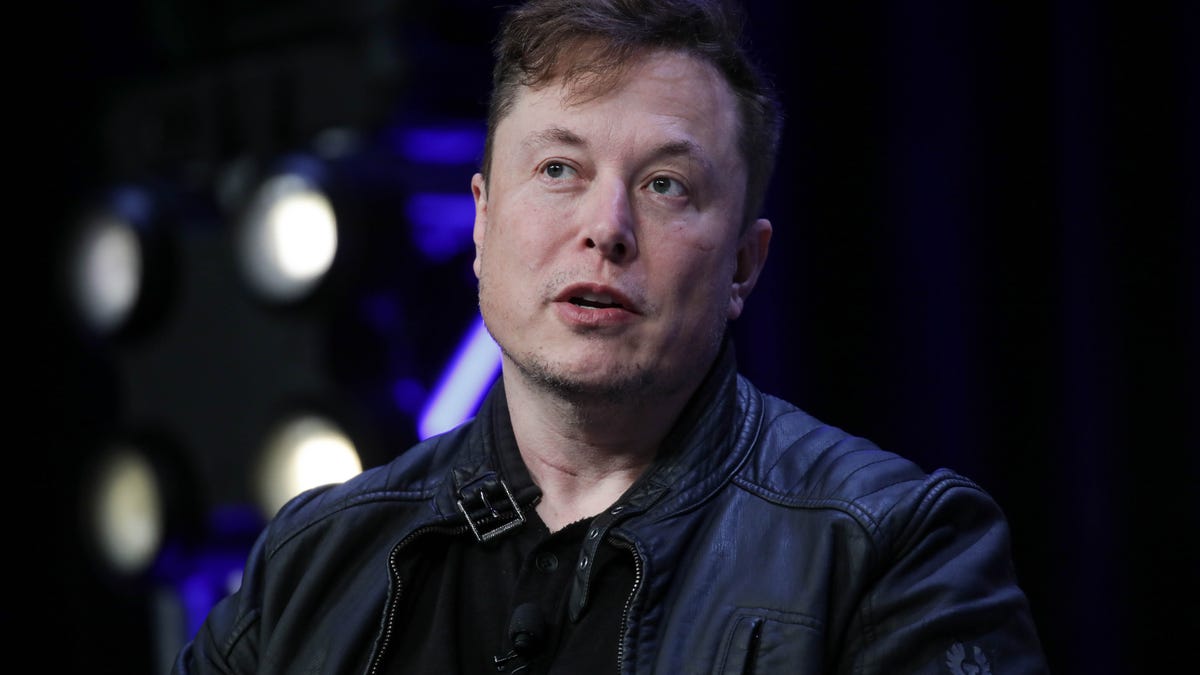Elon Musk Warns of Russian Attacks on Donated Starlink Internet Hubs in Ukraine
SpaceX's CEO cautions that the systems could be targeted, saying antenna should be placed as far away from people as possible.

SpaceX CEO Elon Musk says he's sending more Starlink terminals to Ukraine to provide internet access during the war.
SpaceX's Starlink satellite internet service is active in Ukraine and more terminals are being sent as invading Russian troops disrupt internet access, according to CEO Elon Musk.
At the same time, Musk urged people in Ukraine using the Starlink systems to be cautious because the "probability of being targeted is high." On Thursday, he cautioned people to turn on the devices only when needed and to place antenna as far away from people as possible. Musk added that light camouflage could be placed over antenna to help avoid visual detection.
Satellite signals can reportedly be used to geolocate and target people.
Important warning: Starlink is the only non-Russian communications system still working in some parts of Ukraine, so probability of being targeted is high. Please use with caution.
— Elon Musk (@elonmusk) March 3, 2022
Musk's donations were in response to a plea last week from a senior Ukrainian government official to provide Starlink stations to the country.
"While you try to colonize Mars -- Russia try to occupy Ukraine! While your rockets successfully land from space -- Russian rockets attack Ukrainian civil people! We ask you to provide Ukraine with Starlink stations and to address sane Russians to stand," tweeted Mykhailo Fedorov, the vice prime minister of Ukraine and minister of digital transformation.
@elonmusk, while you try to colonize Mars — Russia try to occupy Ukraine! While your rockets successfully land from space — Russian rockets attack Ukrainian civil people! We ask you to provide Ukraine with Starlink stations and to address sane Russians to stand.
— Mykhailo Fedorov (@FedorovMykhailo) February 26, 2022
A batch of Starlink stations arrived in Ukraine in a truck Monday, according to a tweet by Fedorov, who expressed his appreciation to Musk.
Starlink — here. Thanks, @elonmusk pic.twitter.com/dZbaYqWYCf
— Mykhailo Fedorov (@FedorovMykhailo) February 28, 2022
Starlink is the company's growing network of private, orbital satellites that aims to provide internet connections to anyone on the planet. The prototype satellites were launched into orbit in 2018 and the company has since deployed nearly 2,000 Starlink satellites into orbit across dozens of successful launches.
The satellite-based service provides an alternative to land-based systems that can often be difficult to deploy in remote areas or are otherwise vulnerable to interruption by natural disaster or, in this case, war.
Late Friday, Musk cited free speech concerns in tweeting that Starlink wouldn't block Russian news sources.

